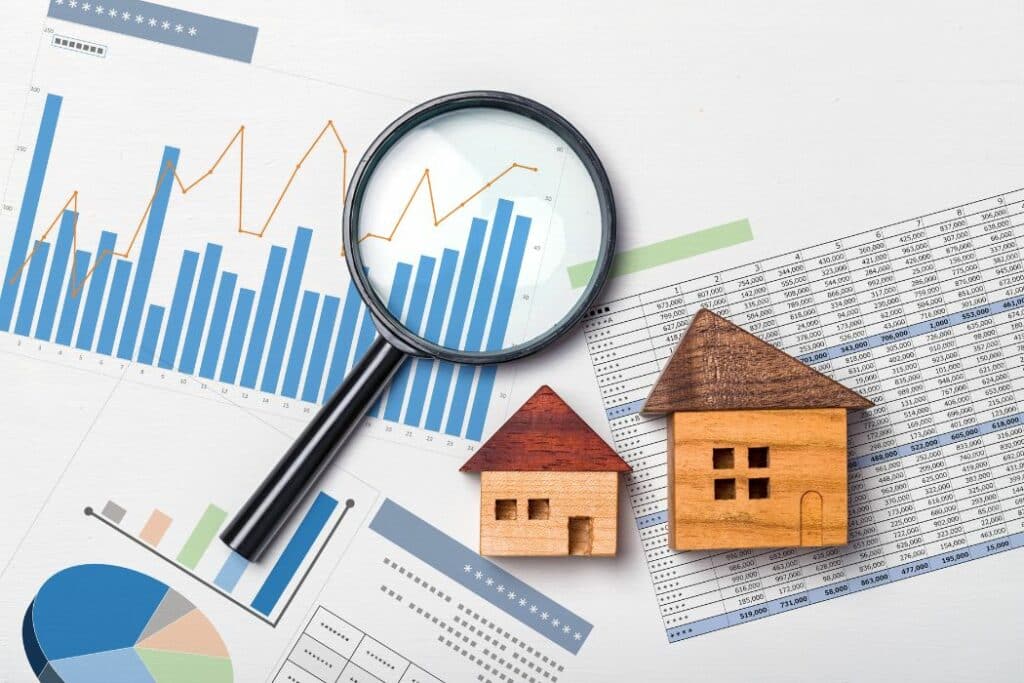The valuation of a company’s real estate assets is an approach often neglected by entrepreneurs, but one that takes on its full importance when it comes to transferring ownership, seeking financing or optimizing profitability.
When, why and, above all, how should you value your company’s real estate assets? Here are the answers to all these questions.
When should real estate assets be valued?
In most cases, the value of the company’s assets is the acquisition value, which is entered on the balance sheet. However, the real estate market is highly volatile, and the actual value of a company’s assets fluctuates over time, usually upwards.
Mandatory valuation of real estate assets
Some companies are required by law to value their real estate assets. This is particularly the case for :
- Unlisted insurance and mutual real estate companies. An annual update is mandatory, and monitoring is carried out by the ACPR (Autorité de Contrôle Prudentiel et de Régulation).
- Sociétés Civiles de Placement Immobilier (SCPI) and Organismes de Placement Collectif en Immobilier (OCPI) are subject to a five-year valuation, and annual updates must be carried out, as required by the Autorité des Marchés Financiers (AMF).
- Sociétés Anonymes (SA) that issue shares or bonds to the public are required to carry out a valuation of their real estate assets every 3 to 5 years.

When should you value your company’s real estate assets?
For most companies, asset valuation is not mandatory. However, it is strongly recommended in many circumstances:
- Business transfers. Real estate assets often represent a significant part of a company’s value, especially if the company owns its own facilities. A precise, up-to-date valuation, a guarantee of transparency, is advantageous for both seller and buyer.
- Free revaluation. At any time, a company can decide to value its real estate assets, thereby strengthening the balance sheet and shareholders’ equity in the event of value creation.
- Company contributions. When a partner makes a contribution in kind, the real estate assets must be accurately valued to determine the number of shares held by each partner.
- Bank guarantee. To finance a business, banks require collateral, often in the form of recently-valued real estate assets.
- Real estate leaseback. Sale and leaseback enables a company to build up substantial cash flow by selling a real-estate asset, while continuing to use it through a rental lease.
In all cases, the valuation of these real estate assets provides an accurate picture of the value of the assets held by the company, and helps optimize their profitability.
Valuing corporate real estate assets: how does it work?
Contrary to popular belief, the valuation of real estate assets is not simply a matter of determining the selling price on the basis of surface area. Indeed, it is necessary to take into account various aspects such as :
- Property location
- Technical characteristics of the property
- Energy performance
- Compliance with environmental standards
- Current expenses
- Possible renovation costs
This means that certain real estate assets, such as brownfield sites in unsuitable areas or oversized, obsolete office space, can lose value for the company, even in a bull market.
This is one of the reasons why it is advisable to carry out regular valuations, in order to identify assets whose value is falling and which are becoming a cost for the company.

What method should be used to value real estate assets?
The three main methods for valuing a company’s real estate assets are as follows:
- The “comparables” method, which limits the “subjective” nature of our approach by basing it on transactions involving similar properties. A useful tool for this method is the land value database made available by the government.
- The capitalization method, which looks at the rent (theoretical or real) that the property can generate and then capitalizes it using a financial rate observed on the market. This method, based on the future yield of a real estate asset, is mainly used by investors.
- The discounted cash flow method, which is also based on the future yield of a real estate asset, takes into consideration the cash flows that the real estate asset will be able to generate over several years (including flows linked to the resale of the asset).
Depending on the type of asset, the company’s activity and the valuation objectives, one method may be more appropriate than another.
Who can value a real estate asset?
For this valuation to be as accurate as possible, it must be carried out by a neutral, independent real estate expert. It’s a guarantee of impartiality that allows us to take into account the real state of the market, rather than the opinions of individuals.
However, this is not an exact science. It is therefore often advisable to call on the services of two real estate experts:
- The first performs an asset valuation
- The second takes a critical look at this valuation.
In fact, the AMF requires SCPIs to use this method for their annual updates, as it minimizes discrepancies with market reality.
Valuing a company’s real estate assets is a useful management tool at various stages in the company’s life. It allows you to optimize profitability, raise funds, free up excess cash, welcome new partners, prepare for the transfer of your business…
❓Whatever your objective, don’t hesitate to get in touch with the Altermès teams for all your questions about adding value to your business real estate assets.










